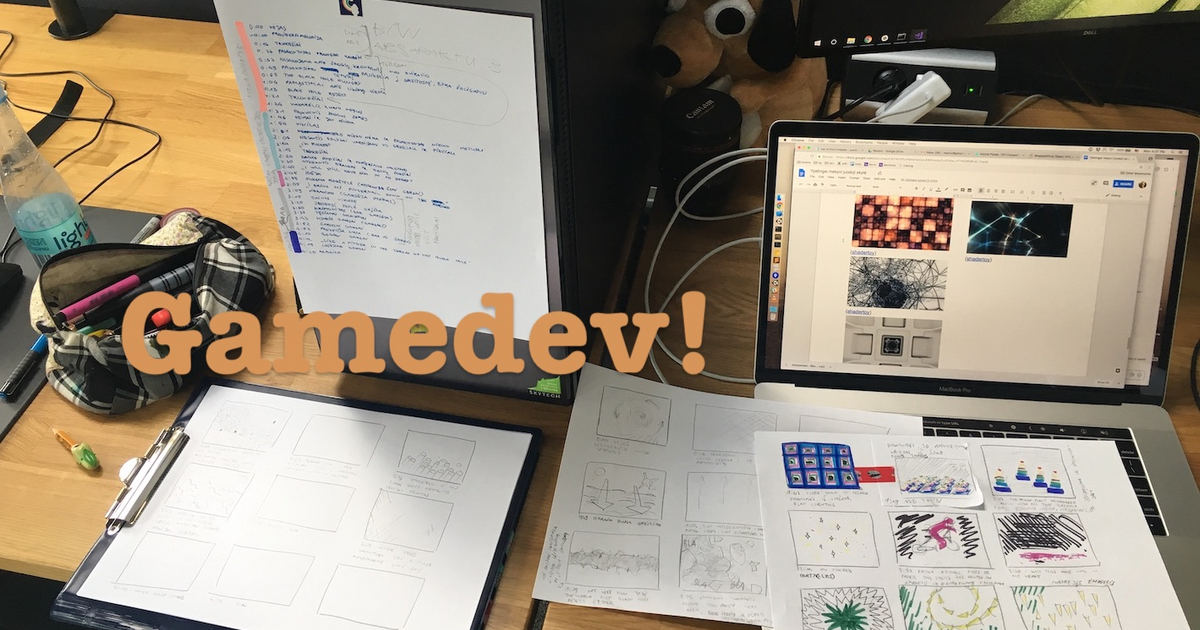Recent searches
Search options
This morning’s panel is worldbuilding from a systems and a writing perspective. Anna Megill, Emily Short, Kait Tremblay. Can’t miss this one.
The point of worldbuilding (yes, this is dreadfully operational) is to make your game more compelling; it gives the player a reason to inhabit and explore.
(In games) worldbuilding has to be connected to gameplay.
(Why is that different from worldbuilding in novels, which have no gameplay? Footnote to myself to think about later.)
KT: how do I use worldbuilding? Think sbout what systems exist in the world (social, cultural). And think about what systems exist in the game (gameplay). Both affect what the player does and what the player wants to do - at different levels. (Values, verbs.)
What parts of the world are unexplored? What significance do the gameplay verbs have? Then how do these fit together.
ES: let’s say you are brought onto a project that has only mechanics, no story at all.
Again, start with gameplay verbs. Example in point: Counterfeit Monkey. Very surreal letter-removing verb. What story comes from that?
How does the world react to this strange action? Is it just the player, or can everybody do it? How does it affect the economy? What are the laws about it?
(There’s an interesting comparison between the world of Counterfeit Monkey and that of Ninefox Gambit. Government control of social convention because that’s how ritual magic works.)
Another systems approach: how much can the player affect the game world? Say we have some kind of game about moving or racing, and you want to cover the most distance in thr least time. What’s the metaphor? A leaky rowboat gives the player something to grasp, a metaphor.
Now you can think about settings, about the player’s fantasies and fears. (For win and lose states.) pirates, napoleonic, Odysseus - many possibilities.
Who cares if you win or lose, and why? What is the opposing force? Is there an antagonist? A god, a zombie pirate, a storm?
As we build that out, we start to get new gameplay ideas. (If you’re struggling against a god, other gods may offer rewards. )
AM: say you start on a game where *no* gameplay exists. You’re starting the story with a blank page.
Lay out borders: budget, team, time. Scope. Genre, theme, pillars, vibe . (If story is not a game pillar, do not start designing with the story!)
Players remember characters and character interactions, not events. Okay, they’ll remember the plot *hook*.
AM talks about “negative capability” the notes in the text that people draw world understanding from. In SF the term is “inclueing”, as in stuff that clues the player in.
Billy Lurk, the remorseful assassin in Dishonored who wants to kill a god. Lots of implications there. There’s morality, there’s combat, there’s weapons, there’s religion. Tensions in all of these aspects.
(Example of a Billie Lurk “wanted” poster from the game. The crimes listed are dependent on the player’s game choices.)
Good question: what if the protagonist is a “Commander Shepard” blank slate? You can still put a box or a role around the protagonist. There are goals and desires even if some part of the character is undefined.

